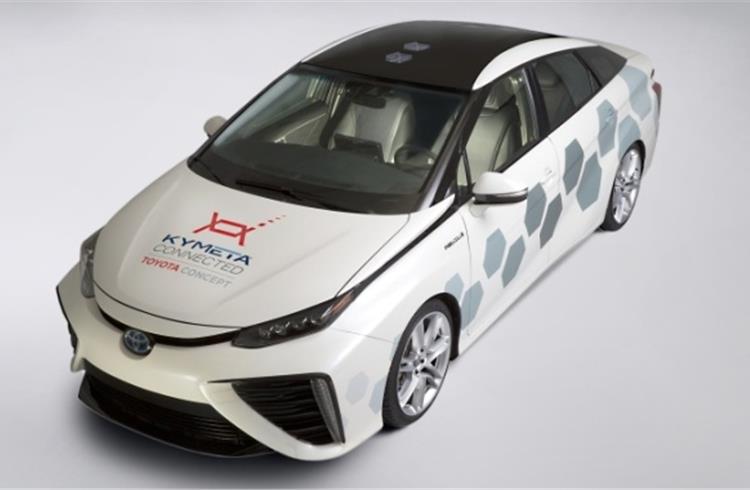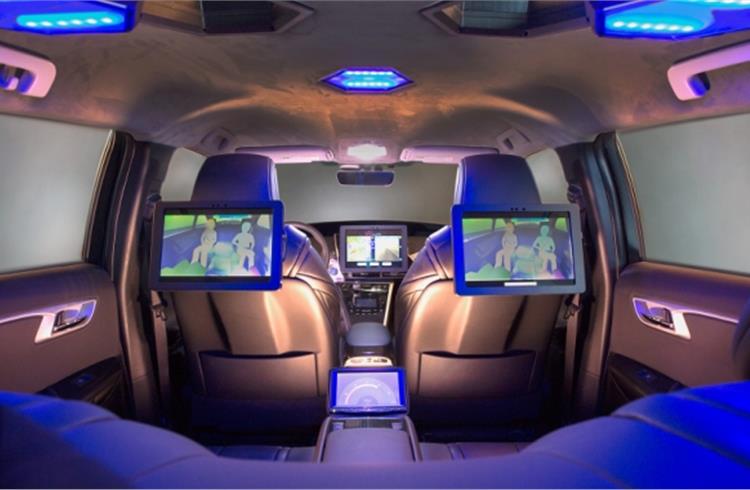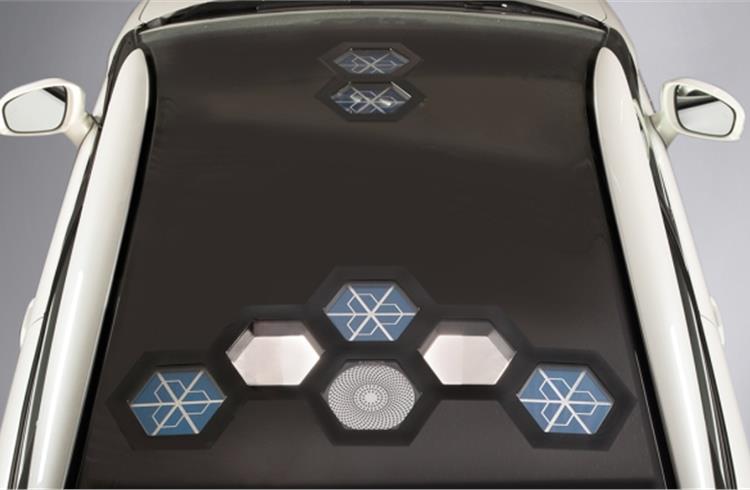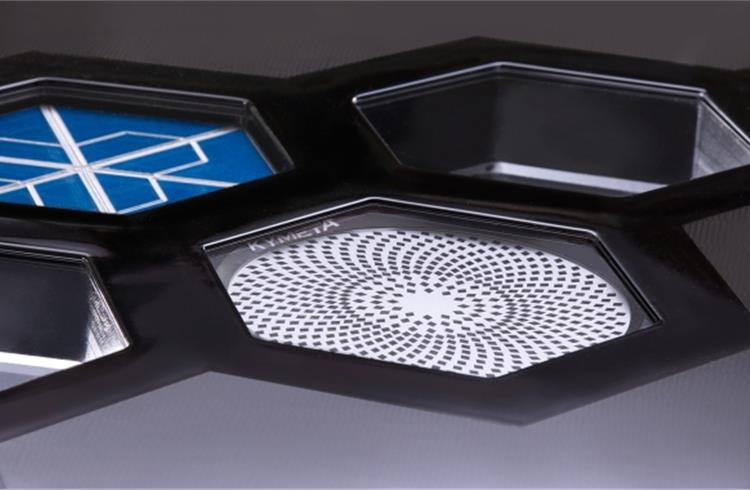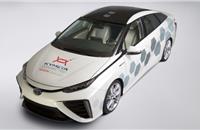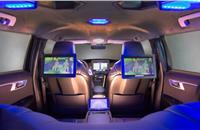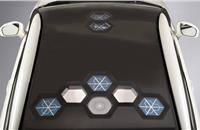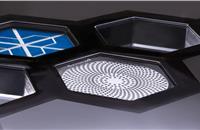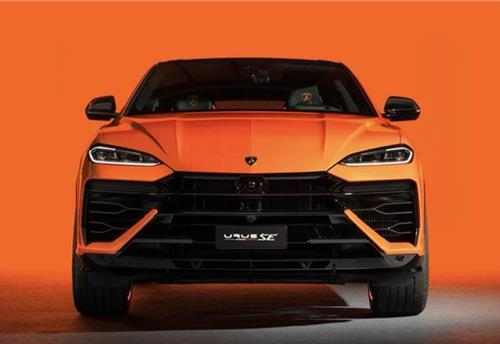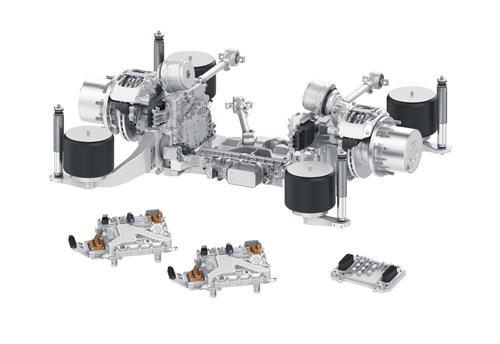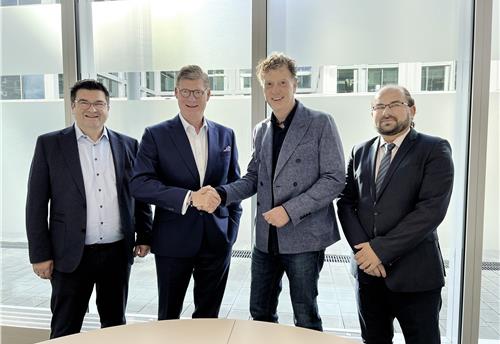NAIAS: Toyota’s Mirai-based research vehicle features satellite communications
Toyota has displayed a research vehicle based on the Mirai fuel cell vehicle which is equipped with satellite communications technology from Kymeta, a US-based company that is specializes in flat-panel antenna technology.
At the 2016 North American International Auto Show (NAIAS), Toyota has displayed a research vehicle based on the Mirai fuel cell vehicle which is equipped with satellite communications technology from Kymeta, a US-based company that is specializes in flat-panel antenna technology.
Toyota is working to enhance its connected technologies, including a plan to install a data communication module into a broader range of its vehicles. The company is also considering using satellite communications in the future, including high capacity satellites that offer much higher data transfer rates than conventional satellite technologies.
While the satellites have historically required the use of a "dish" antenna on the ground, Kymeta's satellite antennas remove the need for mechanical components by using software and liquid crystal technologies to electronically track and steer towards satellites. The lightweight, flat profile of the antenna also allows for seamless integration during vehicle assembly or easy aftermarket installation.
Shigeki Tomoyama, senior managing officer of Toyota Motor Corporation commented, "For several years, Toyota met with emerging companies around the world to investigate new technologies. We were very excited to learn about Kymeta, because their flat antennae technology could solve the challenge of vehicle-based satellite communications."
Satellite communications offer several key benefits to meet automotive needs, including the distribution of huge amounts of data to a vehicle, broad coverage areas and the global deployment of connected vehicles that share common standards across national borders, and more stable and secure communications, particularly in emergencies such as natural disasters.
"We're excited to be working with Toyota on this next generation of vehicle connectivity," said Dr Nathan Kundtz, CEO of Kymeta. "Kymeta is the first company to successfully demonstrate this type of technology, and we have over 8,000 miles of road testing with cars connected to satellites."
Since September 2013, Toyota and Kymeta have been jointly researching on-car flat antennae to support satellite distribution of huge amounts of data to a vehicle. With an exclusive right for development and testing of the on-car antenna, Toyota lent the company research vehicles for test driving.
Mirai Creation Investment Limited Partnership, a fund where Toyota participates as an investor, provided an investment of US$ 5 million to Kymeta this month to enhance future technology research and development. Toyota expects acceleration of the joint research with Kymeta through the investment.
More from Detroit Motor Show:
- Porsche unveils facelifted 911 Turbo and Turbo S
- Audi unveils h-tron quattro concept
- Ford unveils lightweight EcoBoost engine concept
- Kia unveils Telluride concept SUV featuring 3D printed parts
RELATED ARTICLES
Lamborghini unveils Urus SE ahead of Auto China 2024
Electric-only range of 60km helps reduce emissions by 80%.
ZF to display next-gen e-axle for low-floor city buses at Busworld Turkiye 2024
The AxTrax 2 LF is available with a continuous output of up to 360 kW and a peak torque of up to 37,300 Nm.
Daimler Buses and BMZ Poland to develop next-gen NMC4 electric bus batteries
The new battery generation NMC4 – succeeding the current NMC3 technology – will combine high energy density, resulting i...





 By Autocar Pro News Desk
By Autocar Pro News Desk
 13 Jan 2016
13 Jan 2016
 3022 Views
3022 Views



